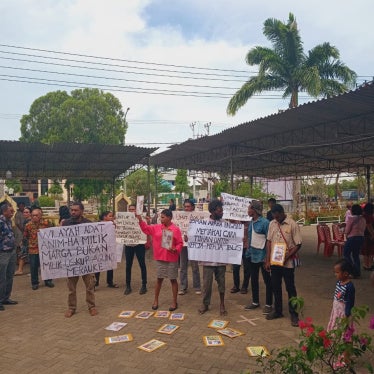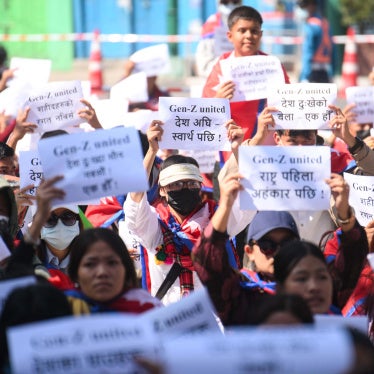Burma's political isolation doesn't make it immune from nature. Thursday's major earthquake, of 6.8 magnitude, struck the northeast of the country, in Shan State. Preliminary reports put the death toll at more than 150, and there are reports of widespread destruction of buildings, bridges, and roads, including 250 houses and Buddhist monasteries destroyed. Given the rugged terrain and poor communication resources, it may be some time before the real human and material toll is known. But don't expect Burmese authorities to rush out with updated damage assessments and calls for assistance, or to hasten to the scene to help those affected: natural disasters are national security secrets in Burma. Complicating this particular disaster is the fact that the area where the earthquake struck is a zone of ongoing, violent conflict between the Burmese government and insurgent forces-a conflict that authorities are eager to eliminate. There's reason to believe that, among its many shameful responses to disaster, the government's reaction to the quake might prove its worst yet.
The Burmese military regime has a terrible record of managing recovery after natural disasters. Nearly three years ago, Cyclone Nargis destroyed large parts of the Irrawaddy Delta and parts of the former capital, Rangoon, leaving 140,000 people dead and destroying the homes and livelihoods of two million more. It took days for the real extent of the damage to get out, but, once it did, the international community reacted with generous offers of support. Yet the then-ruling State Peace and Development Council (SPDC) wasn't interested, saying outside assistance wasn't necessary-when, in reality, it feared aid could compromise state security. Meanwhile, Burma's tiny civil society tried to work around official obstructions. A coalition of professional aid workers, political dissidents, cultural figures, businesspeople, and volunteers staged a major relief effort. Threatened by this group of independent actors, however, the military arrested and imprisoned scores of community aid workers who criticized the government's response to Nargis, including Burma's most famous comedian, Zargana, who received a 35-year sentence. Eventually, under the weight of concerted international pressure, the junta slowly opened its doors to international aid-but, once this aid finally rolled in, the SPDC took credit for most of it.
In October 2010, Cyclone Giri struck western Burma, devastating the town of Kyaukphyu, killing around 200 people, and rendering thousands homeless. The government acted marginally better than it did after Nargis, permitting international and Burmese aid workers access to the area, but it still retained strict controls on movement and numbers of personnel allowed into the affected area. And aid donors barely responded to Giri-it wasn't covered as extensively in the foreign media, and, by then, many donors had also become wary of the official neglect that had hindered Burma's response to previous disasters.
Nargis and Giri-and now, most likely, the earthquake-have laid bare Burma's desperate humanitarian needs and the contempt the junta shows for its own people. Decades of military mismanagement has pushed Burma into the bottom reaches of development statistics: the worst maternal health system in Asia after Afghanistan, one-third of its citizens in poverty, and a decaying education system that is producing a new generation of illiterate, no-skills labor. After sham elections in November 2010, the new government allocated 24 percent of the state budget to military spending, but only 1.3 percent to health and 4.1 percent to education. And, based on previous experience with disasters, the world shouldn't expect that anything will change after the earthquake: The government response will be virtually no assistance or compassion for the affected area. What's more, if the junta allows foreign agencies to spend money on relief work, it will likely take credit for and advantage of it.
The earthquake, however, does have a markedly different political dynamic than previous disasters. Eastern Shan State, around the epicenter of the quake, is a sensitive area. Apart from the main road to the regional capital of Kengtung, it is closed to foreigners, because it is home to continued armed conflict between the junta and anti-government rebels, as well as massive narcotics production and smuggling, protected in large part by the Burmese army. The country's incoming president, former Lieutenant General Thein Sein, was the regional army commander of this area from 1997 to 2001, and he oversaw an intensifying conflict between the Burmese army and ethnic Shan insurgents. His time in the region also saw a massive explosion in the manufacture of cheap methamphetamines by the United Wa State Army (UWSA), Asia's largest narco-army, which, unlike the Shan insurgents, has maintained a shaky ceasefire with the central government for 22 years in exchange for being allowed to expand its drug empire. Today, the ruling military provides limited social services to Shan State, spending more time fighting insurgents and accruing kickbacks from the drug trade, logging, and smuggling than fostering genuine development.
What will this mean going forward after the quake? United Nations agencies are already starting impact assessments in the affected area, but it is unlikely that any relief operation will be able to access areas deemed security zones by the Burmese army, which includes most of the area north of the border town of Tachilek, which was badly damaged. Aid workers are already being hampered from delivering assistance due to damaged roads and travel restrictions imposed by the army. The junta could also send in even more troops under the auspices of humanitarian relief, in an effort to clamp down more tightly than ever on the Shan rebels. A complex conflict, in other words, could take on yet another layer of tension-kicking the possibility of peace even further down an already long road.
As other disasters in Burma have shown, the junta's response to its people's desperation is predicated on self interest and regime survival. In Shan State, their quality of mercy will likely be even worse than usual.
David Scott Mathieson is a senior researcher in the Asia Division of Human Rights Watch







